Threats are increasingly impacting the stable use of outer space, including the collision of space debris with satellites and other objects. To contribute to space security, the Space Operations Group of the Japan Air Self-Defense Force has been intensifying its efforts.
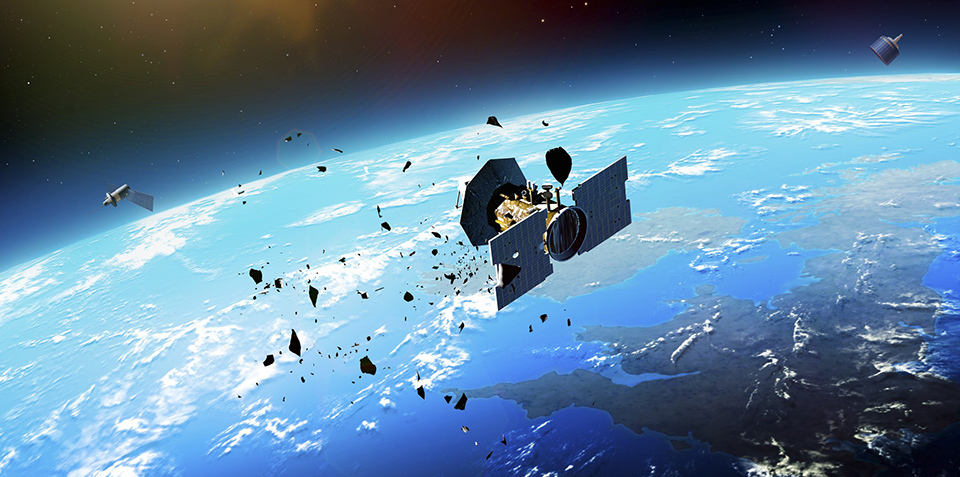
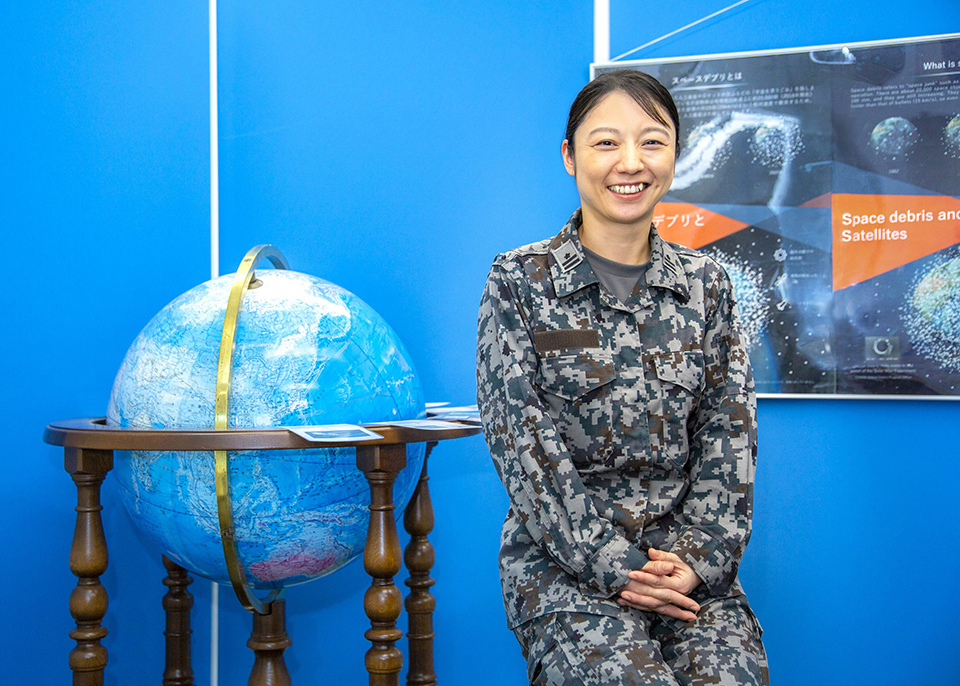
“As our mission is in unknown territory, a big challenge for us is human-resource development,” said Lieutenant Colonel KANAGAWA Ayumi, chief of the Defense Plans Section of HQ Space Operations Group of the Japan Air Self-Defense Force. GETTY IMAGES
The development of outer space has progressed apace in recent years, with various space-based technologies—GPS, satellite communications, and weather forecasting—now playing important roles in our lives. At the same time, though, new threats have been growing. Large quantities of space debris in Earth orbit have heightened the risk of collisions with satellites and other objects, while the neutralization of satellites through cyberattacks and other harmful actions—with serious global consequences—is now a reality.
Given that backdrop, many countries, including Japan, have striven to enhance their capability for Space Domain Awareness (SDA). Colonel MINAMI Kenji, director of the 2nd Force Structuring Division, Air Staff Office, Ministry of Defense (MOD), said, “SDA refers to understanding the position and orbit of space objects (including the space environment), as well as the operation and utilization of spacecraft and their intentions and capabilities.” As to the importance of SDA, SHIBATA Yuri, principal deputy director of the MOD’s Strategic Planning Division, explained, “Space is very beneficial for operations on Earth as it has no national borders and any point can be accessed. The same properties, however, could become vulnerabilities owing to the difficulty of preventing attacks and unforeseen threats. Initiatives must be taken to ensure that such things do not happen.”
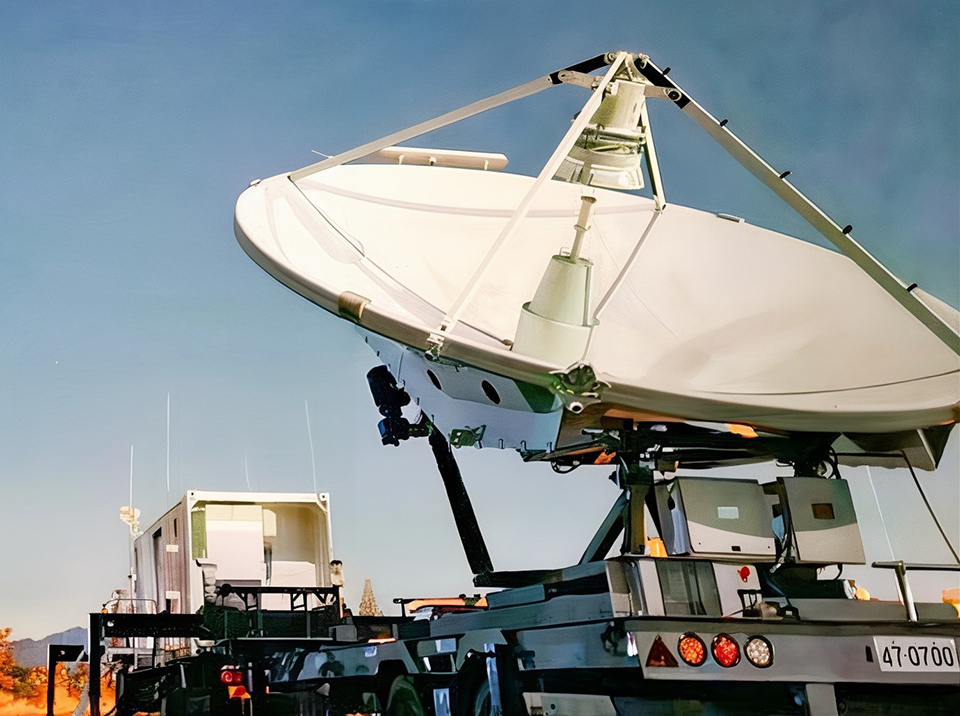
In FY2023, Japan introduced new equipment, including a system to monitor interference with its satellites (photo). Additionally, an SDA satellite is scheduled for launch in FY2026 to monitor objects that are difficult to observe with ground-based equipment.
Since 2023, it has commenced the full operation of a system to grasp the position and orbit of space objects. Working with the Japan Aerospace Exploration Agency (JAXA) and other organizations, it conducts monitoring activities around the clock and notifies satellite operators of the possibility of approaching objects. “You might imagine something out of ‘Star Wars,’ but in reality, it is a down-to-earth mission in which we use various sensors on the ground to understand the situation in space and, when necessary, alert satellite operators about approaching objects,” said Lieutenant Colonel KANAGAWA Ayumi, chief of the Defense Plans Section of JASDF’s HQ Space Operations Group.
International collaboration is a prerequisite to understanding the situation in space, which contains more than 27,000 observable objects that are bigger than 10 cm in Earth orbit, including space debris. Since its establishment, the Space Operations Group has been taking part in multilateral tabletop exercises, such as the U.S. Space Command’s Global Sentinel exercises and Schriever Wargame, with like-minded countries. In 2024, Japan also joined AsterX, which has the participation of 14 countries, primarily members of the North Atlantic Treaty Organization (NATO).
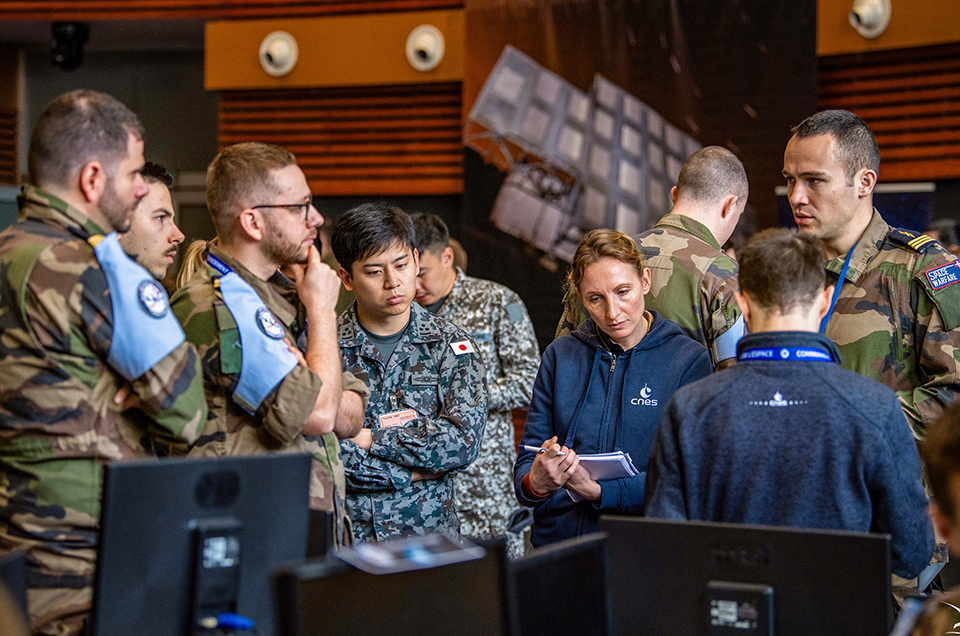
In March 2024, the Space Operations Group participated for the first time in AsterX, a multinational tabletop exercise hosted by the French Air and Space Force.
The sharing of data and knowledge with countries from other regions of the world not only leads to better global situational awareness, but also promotes the mutual recognition of each country’s capabilities and efforts in understanding the space domain, fostering trust and strengthening future collaboration. Even in space, Japan acts in line with the basic principles of the Japanese Constitution, which calls for pacifism, maintaining an exclusively defense-oriented policy and not becoming a military power that poses a threat to other countries. “These interactions also present good opportunities to get the other participating countries to understand our position,” said Minami.
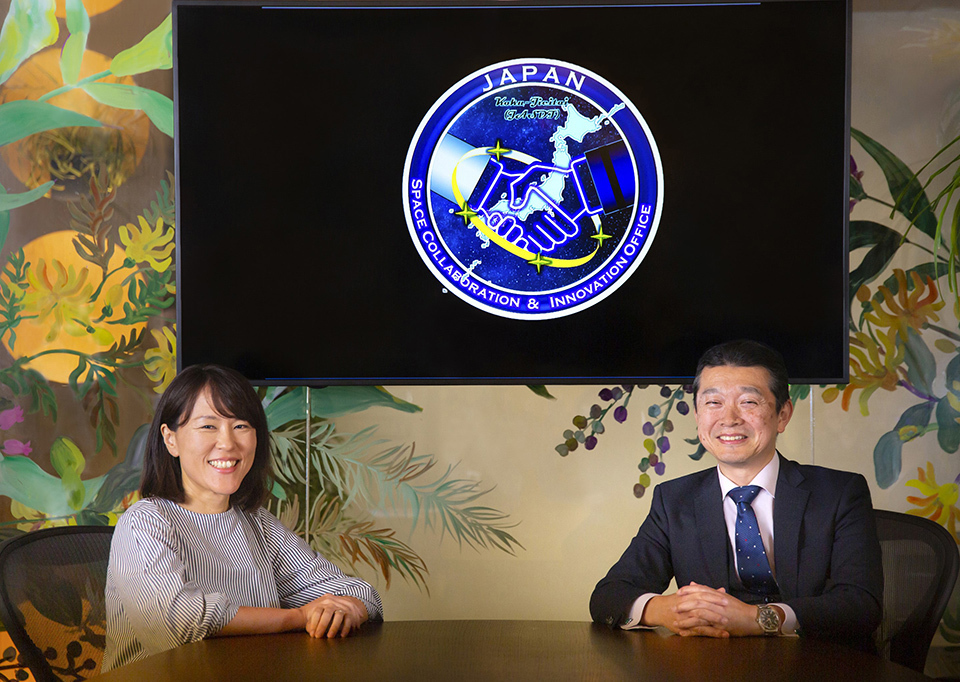
Colonel MINAMI Kenji (right), director of the 2nd Force Structuring Division, Air Staff Office, Ministry of Defense (MOD), and SHIBATA Yuri (left), principal deputy director of the MOD’s Strategic Planning Division.
Besides international collaboration, it is also critical to work with the private sector, which is becoming the driving force of space development. The Space Operations Group often seeks cooperation from cutting-edge companies to learn from their technologies and expertise. Moreover, in 2023, JASDF set up an office in a shared working space in Tokyo as a venue for interactions with startups and other companies. To date, it has exchanged information with more than 120 companies, examining various ideas such as the application of civil technology in military equipment.
JASDF plans to change its name to “Japan Air and Space Self-Defense Force” by FY2027. This implies that the stable use of outer space will become increasingly important for Japan and the world. According to Kanagawa, “The more we rely on space infrastructure, the more invisible threats we face. It is our mission to protect people from such unforeseeable risks by developing the SDA system in collaboration with other countries.”






























